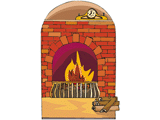Good afternoon WAAFER! When you get your book, you will be reading about the hostility many Americans had toward Great Britain and intervention. Always, forever, we will be wondering what would have happened if the Japanese had not attacked us when they did. The country did a complete turn-around and very quickly.
However, this book is centered on the years prior to that attack and Lindbergh, a hero at the time, was giving speeches on the radio and the newspapers were quoting him constantly. It is hard for me to believe that Lindbergh was listened to; by what authority, what source other than his trips to Germany, made him believe he was correct in his views.
He was young, shy, a pilot. The New York Times criticized the “peculiar young man” for his attitude and then FDR became enraged stating among other like statements: “What a pity that this youngster has completely abandoned his belief in our form of government and has adopted Nazi methods because apparently they are efficient.”
Other than planes, weapons, what did he know of diplomacy, as BELLEMARIE and JOANK both stated.
Do you think the author has exaggerated his influence with the public? And used Lindbergh, possibly, to make the book more interesting?
We read about Dorothy Thompson, who was a very popular columnist and who had lived in Austria and Germany when Hitler was rising to power. She wrote of his evil regime - "Nazism is a complete break with reason, with the Christian ethics that are at the bas of liberalism and democracy."
And then there was Eleanor..........
